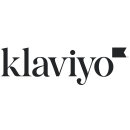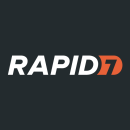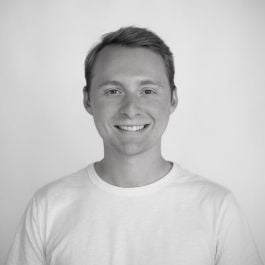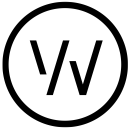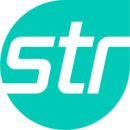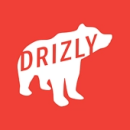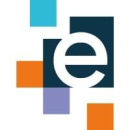Software engineers are a hot commodity in any labor market, which makes it all too easy to think that their job search is less of a journey and more of a relaxing stroll through a field of offers. In reality, developers face the same challenges as anyone else in tech, especially when the goal is to find a job they love versus one that just pays the bills.
That’s easier said than done, especially since devs need to consider more than just a company’s mission and product. They also need to find a team whose development philosophy matches their own to ensure that their day-to-day work is enjoyable. This is what Zach Sibert did when applying to WHOOP. Sibert told Built In that he was sold on applying to the healthtech company’s open software engineer II role after browsing its engineering blog.
“I was thrilled to read about WHOOP’s ‘product engineer’ mentality, a school of thought I had subscribed to after past experiences,” Sibert said. “With this mindset comes an emphasis on infrastructure, which in practice results in a good developer experience and a platform that will scale for the business in the long term.”
After finding the perfect role, engineers have to prove themselves in interviews. While interviews are typically seen as an opportunity for candidates to sell themselves to a company, the reverse is also true. Casey Hornbeck, who recently joined Panorama Education as a senior software engineer, said the company’s focus on soft skills really stood out to him.
“I found Panorama Education’s interviews focused more on personality and drive,” Hornbeck said. “Instead of an investigative approach into ones’ technical abilities, they give opportunities for candidates to show their strengths in a comfortable setting.”
Long story short: It takes hard work for developers to find a company and job they love, but it can be done. We recently spoke with 10 Boston engineers to learn how they did it along with what they love about their work now.
What attracted you to apply for a role at Klaviyo in the first place?
Klaviyo’s core mission of empowering businesses, especially small businesses, to own their destiny by helping them significantly improve their marketing resonated very well with me. Additionally, I was convinced by the impact one can have at Klaviyo, where features I contributed to could literally change the lives of tens of thousands of entrepreneurs and reach millions of people around the world.
Having previously been a core engineer building and maintaining email and SMS broadcasting products, I was amazed by the scale at which Klaviyo operates, too. Real-time processing of billions of events comes with especially challenging engineering problems that are interesting to solve.
Last but not least, I was fascinated by Klaviyo’s founder and CEO, Andrew Bialecki. An engineer at heart, Andrew set out to solve a big problem that he keenly identified as affecting entrepreneurs’ ability to grow and thrive. I was impressed by his humble demeanor, decency and genuine drive to help entrepreneurs succeed.
Which skill or experience do you think helped distinguish you during your job search?
At my previous startup, I had been the main contributor and leader in building a new email broadcasting product for our customers. Subsequently, as team lead, my teams were responsible for maintaining as well as implementing new features for both the email and SMS broadcasting products at the company. There were several similarities between the email and SMS broadcasting products I had worked on and the offerings from Klaviyo.
I was able to clearly convey my experiences, the challenges I solved and various features I implemented with these products during my interview. Additionally, I was able to share my experience and lessons learned from working in a fast-paced startup environment where I was able to efficiently solve challenging problems without compromising on quality.
What do you enjoy most about developing Klayvio’s technology, and what do you find most exciting or challenging?
From the very first week, I was struck by the caliber of people working at Klaviyo. I am truly privileged to work alongside a talented and remarkable group of people from all over the world. I truly believe that such a solid group is a big secret to Klaviyo’s success. Additionally, I am amazed by the impact we are able to make with our work.
As part of the SMS team, this is especially amplified by the fact that this is a market Klaviyo is rapidly expanding into and becoming a leader in, which provides an opportunity to develop some really exciting features. One of the most challenging aspects of what we do is the fact that we operate at such a massive scale, so we have to carefully consider how performant any changes we make will be so that they don’t negatively impact our customers’ experience. Luckily, we all collaborate closely across various teams and have turned this challenge into a unique opportunity to learn from one another and acquire new skills to make our systems more resilient and scalable.
What attracted you to apply for a role at Forward Financing in the first place?
The people, first and foremost. I’d worked with Brittney St. Germain, our VP of technology, at a prior company where I gained a lot of respect for her talent directing teams and nurturing strong cultures. When I got to know the team during the interview process, I was really excited about the positive energy and the diversity compared to other teams I was interviewing with. We are Boston-based and I live outside Boston, but some of my closest friends on the team are based internationally in the Dominican Republic and Paraguay. I don’t think of them as an ocean apart.
Which skill or experience do you think helped distinguish you during your job search?
As a psychology major who fortuitously stumbled into software engineering, I put a bigger emphasis on soft skills than most. Don’t get me wrong, coding ability is important. But in my experience interviewing on the employer side, more decisions have come down to, “Do we want to work with this person,” than “Can this person do the job?”
So when I’m interviewing for a role myself, I make it a point to understand the business, convey excitement about both the business as a whole and the opportunity in front of me, ask engaging questions and, despite the inevitable stress, try and have a little fun.
What do you enjoy most about developing Forward Financing’s technology, and what do you find most exciting or challenging?
I find the massive amount of potential technology has to help scale the business at Forward Financing exciting, as well as the direct, measurable impact that growth has on our small business customers across the nation. We are laying the groundwork for future growth that will dramatically improve the bottom line of our business and the experiences our employees, partners and customers have when they use our tools and products.
We’re currently making significant changes on the tech side, and our colleagues in sales and customer support are still using the systems we are working to improve to fund small businesses to the tune of millions of dollars. It’s a challenge to balance moving quickly and making big updates while also being methodical, careful and courteous to those actively using the system.
What attracted you to apply for a role at Rapid7 in the first place?
I heard about Rapid7 through the grapevine and had always found cybersecurity to be an interesting industry. The role I applied for was on one of Rapid7’s product teams, and I was excited about the opportunity to help develop an up-and-coming product with an exponentially growing customer base. During the interview process, I learned that the role was on a cross-functional team, so I not only got to work with engineers of all seniority but also product managers, user experience designers and security specialists.
As someone early in my career, I emphasized the importance of technical mentors in my job search, so I was really sold on the makeup of the team. Rapid7 seemed to be a place where I could grow my career and make an impact on a customer-facing product while being surrounded by friendly, intelligent and supportive people. All of that was — and still is — true to this day!
Which skill or experience do you think helped distinguish you during your job search?
I vividly remember saying in one of my Rapid7 interviews that my best asset is my curiosity. I’m always eager to understand the ins and outs of a potential solution. Especially because I was applying for an entry-level position, I think my willingness and eagerness to learn was really the most valuable skill I brought to the table. I’m someone who would rather ask 100 questions than not fully understand something, and that attitude ultimately got me the job. I felt that the interviewers connected with the part of me that just genuinely enjoys engineering and understood that I wanted to work at a place and on a team that could keep my love for engineering alive.
What do you enjoy most about developing Rapid7’s technology, and what do you find most exciting or challenging?
Our engineering initiatives are always framed in terms of a customer problem. Because of this perspective, we know we are engineering for a purpose. When I am feeling disheartened by a particularly tricky bug, I am motivated to get to the bottom of it because I know our customers are grateful for Rapid7’s products. We are not building features for the sake of it. We are constantly iterating on our products to ensure that our customers have the best user experience.
One of the most thrilling and challenging parts of the job is that our customer’s problems and the realm of cybersecurity are always changing. This means that we need to be agile and flexible to ensure we are solving the right problem at the right time. This constantly morphing industry makes my job exhilarating and ensures that I’m always solving new engineering puzzles and never stagnating or feeling monotony.
What attracted you to apply for a role at Panorama Education in the first place?
After I received a message from Panorama’s recruiting team, I looked into the company’s reviews, website and photos. From what I read, the culture valued diversity and inclusion, and I decided to schedule an interview where I quickly saw those values reflected in the engineering team. Everyone I spoke with had a strong understanding of the importance of diversity, equity and inclusion, which is hard to find in today’s engineering teams.
Which skill or experience do you think helped distinguish you during your job search?
In my job search, I noticed that many companies didn’t value soft-skills as much as technical abilities. Most of the responses I’d get would be along the lines of, “The managers really thought you’d be a great culture fit, but we’re looking for someone with this exact tech stack,” which, to be honest, is a missed opportunity to invest in new hires and reduce future turnover.
I found Panorama Education’s interviews focused more on personality and drive. Instead of an investigative approach into ones’ technical abilities, they give opportunities for candidates to show their strengths in a comfortable setting. My technical interview went well, but my communication and empathy skills really helped distinguish me.
What do you enjoy most about developing Panorama Education’s technology, and what do you find most exciting or challenging?
We work with event-sourced architecture, which is a structure I’ve seen used in Chargebee, a third-party service I used at my previous job for subscription management. It’s a solid architecture that requires interesting scaling solutions. I’m also excited that we’re working with Ruby, which I haven’t used at smaller companies. One challenge I’m looking forward to is scaling our event-sourced architecture while adding more clients and new features.
What attracted you to apply for a role at WHOOP in the first place?
The product itself was the initial draw, in that it not only attempts to unlock the understanding of the human experience and improve it but actually achieves it. Now that I’m at WHOOP, it’s incredible to see how well the product actually works in alignment with its vision, and I find myself changing habits in response to its feedback.
But as I dug deeper into the engineering blog during the application process, I was thrilled to read of WHOOP’s “product engineer” mentality, a school of thought I had subscribed to after past experiences. With this mindset comes an emphasis on infrastructure, which in practice results in a good developer experience and a platform that will scale for the business in the long term.
Which skill or experience do you think helped distinguish you during your job search?
My past experience acquiring domain ownership within an organization enabled me to be in a position where I could lead projects and make cross-functional impact. Showing that I could effectively manage a project with wide impact, execute on it and present a measurable impact resonated with interviewers, along with being able to communicate well with non-technical stakeholders and generate buy-in.
Seeing a positive reaction from the WHOOP team regarding these experiences gave me a sense that I could continue to grow and expand on my leadership. I personally believe that when a company values these skills, they result in better outcomes for the business and its employees, and I see it work effectively day in and day out.
What do you enjoy most about developing WHOOP’s technology, and what do you find most exciting or challenging?
What I’ve liked most about working at WHOOP is that it advocates for its engineers’ goals and interests. The emphasis on infrastructure and technical growth has fostered an environment where engineers can get up and running with new ideas quicker since much of the foundational layer has been standardized. However, this doesn’t mean we’re tied down to these technologies.
If we find a compelling need to expand our opinions, we’ll do so. More specifically, I’ve found it exciting to write code that anyone in the world can interact with. As a member of the growth team, our goal is to find new ways to make WHOOP more globally accessible. This poses an interesting challenge for scale and requires wide support for different languages and cultures.
What attracted you to apply for a role at Aura in the first place?
At first it was the immense business opportunity: simplify the digital security landscape for the average person. It immediately triggered the curious engineer in me who knew that the technology hurdles this mission will have to overcome would be intellectually challenging. As a distinguished engineer for the cloud group at HPE/Aruba, I had the honor of being a part of the team that built a common cloud platform and related services that all business units at the company leveraged. I always look for roles that challenge me, require me to apply myself fully and where I can hit the ground running while helping colleagues benefit from my experiences.
When I noticed that Aura had a position open for a software architect in the group that had worked on and conquered complex technical challenges and were working on things that enabled the Aura suite vision, I felt excited. It matched with one of my previous experiences of designing, architecting and developing a plumbing system for the cloud services my group was managing. With that, and with my desire to create a real impact on a company with a mission, the only question remaining was the start date.
Which skill or experience do you think helped distinguish you during your job search?
One of the reasons I think the team chose me was my ability to grasp the depth at which the team was communicating. A majority of the questions the interview panel asked were open-ended and required practical experience and expertise within more than one domain. I was also able to clearly communicate achievements from my previous experiences, including how business requirements were translated into technology designs and stacks and the reasons certain technologies or designs were chosen.
What do you enjoy most about developing Aura’s technology, and what do you find most exciting or challenging?
Aura has an amazing mission — to address the digital well-being of our users — and there is quite a bit of engineering work to be done. Being part of a team that is very collaborative and transparent and is shaping the future of the company as well as its technical services ecosystem is very exciting to me.
What attracted you to apply for a role at STR in the first place?
I looked into the company after I saw a job posting for an autonomy engineering position. I felt really drawn to what the company stood for and the projects they engaged in. The opportunity provided a chance to work with more experienced people in my preferred field, who I could learn a lot from.
Also, the position afforded me the opportunity to work with a lot of advanced technology and improve my skill and experience as an engineer. The different projects they engaged in seemed exciting and challenging and fit well with my skill set. It didn’t hurt that the company was in a great location.
Which skill or experience do you think helped distinguish you during your job search?
I believe my previous internships in robotics and autonomous systems gave me a good edge in my job search. Also, I did a couple of projects while completing my masters that provided a lot of experience in computer vision, deep learning and robot perception. I also did a lot of work visualizing and simulating robotic models in ROS. Most of the projects included a mix of different fields, which helped highlight my strengths and my creativity in approaching and solving problems.
With all that, I was able to show how well I can mesh different topics and my level of understanding in most of them. My programming experience helped a lot in the interview stages as well, especially during the programming assignments.
What do you enjoy most about developing STR’s technology, and what do you find most exciting or challenging?
I enjoy the opportunity to work with different, like-minded people who are incredibly passionate about what they do. It is exciting to influence the final outcome of multiple projects and to test new technology and figure out the best way it can be used to achieve maximum benefits. It is also really exciting to get the chance to experiment with different theories and test how well they can be used to help solve a particular problem.
There are always challenges in every profession, and STR provides a really suitable environment for dealing with them. Different projects produce different hurdles, and we are given the time and the best resources to come out with creative solutions.
What attracted you to apply for a role at Drizly in the first place?
I applied because I was familiar with their product, which I had used a few times in the past, and because I appreciated that they decided to fully embrace a remote workplace. When I started the interview process, I was immediately attracted to the culture at Drizly. The company seemed full of nice people who were focused on building out and scaling up the current application with no ego involved. Since I’ve been hired, I’ve found the culture to be all that and more.
Which skill or experience do you think helped distinguish you during your job search?
I had a few years of experience working in software on different teams and for different clients, both internal and external. I believe my experience doing this, along with a background in communication, helped me develop my soft skills along with my technical skills.
What do you enjoy most about developing Drizly’s technology, and what do you find most exciting or challenging?
There is always so much impactful work to be done. We work on projects that have direct business impact and provide a lot of learning opportunities. This is also the most exciting and challenging thing about working here. Every project is visible and matters. There is additional responsibility but it provides a great opportunity for growth.
What attracted you to apply for a role at eClinical Solutions in the first place?
I found my passion for data analytics during my undergraduate career. As a biomedical engineering major, most of the data analytics I was doing dealt with medical machine data or patient data. When I found out about eClinical, I was truly amazed at the work they were doing. The “elluminate” platform can wrangle and process an enormous amount of clinical study data and present key findings in a user-friendly manner, thus speeding up the time from clinical trial start to drug approval. As someone interested in software being applied to the medical field, this job seemed like a perfect match, and it is!
Which skill or experience do you think helped distinguish you during your job search?
The experience that distinguished me was applying machine learning and natural language processing techniques to biomedical applications using Python. Specifically, during my senior engineering project I was able to analyze a large amount of text data and generate various predictive models, which I taught myself how to do. This project was the main talking point at many of the interviews I attended. The experience is what drew attention, but being a self-learner is what jobs are looking for and what ultimately distinguished me from other candidates.
What do you enjoy most about developing eClinical Solutions’ technology, and what do you find most exciting or challenging?
The machine learning team at eClinical has no defined rulebook for how to go about solving a problem. This allows for creative freedom in software development, something hard to come by as a new graduate. The problems we solve on the ML team are rigorous and challenging, but in the end they help both the elluminate product and the company internally. Being able to work as a team to solve complex problems for top 100 pharma companies is truly exciting.
What attracted you to apply for a role at Silvertree in the first place?
I love startups, hardware and engineering, but for this position, I was looking for a company with a social mission that also was friendly to my current life stage as a new mom. Silvertree checked all those boxes.
Which skill or experience do you think helped distinguish you during your job search?
My prior engineering experience as a “startup generalist” helped a lot. Being able to say that “full stack” to me means starting with firmware assembly and going all the way up through web and mobile programming and architecture was a way of standing out to a small startup.
What do you enjoy most about developing Silvertree’s technology, and what do you find most exciting or challenging?
I don’t think enough attention is paid to the concept of simplicity, especially in consumer electronics. I’m really excited to be working on technology that stretches the limits of available hardware in terms of low power, high usefulness devices.



